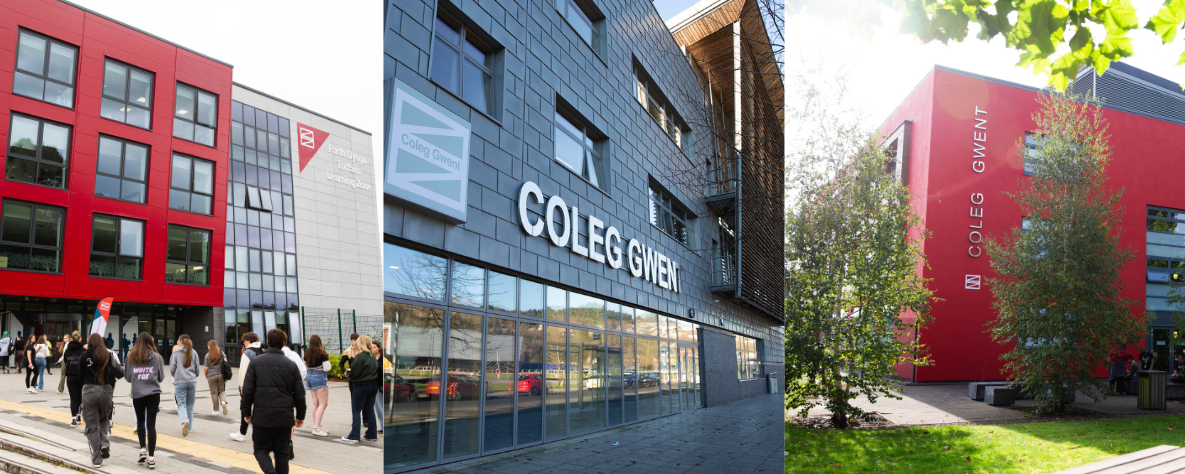
Coleg Gwent's Journey Towards Net Zero Carbon
25 March 2024
At Coleg Gwent, we’re proud to be ambassadors for the environment. As Wales’ largest further education institution, we recognise the profound impact our operations can have on the environment. That’s why we’re dedicated to implementing innovative strategies to reduce our carbon footprint and work towards achieving net zero carbon emissions by 2030.
We’re integrating sustainability into our decision-making processes to ensure it remains a central focus in all aspects of our operations, and as such have initiated several new initiatives to further our progress towards our sustainability goals.
- Sustainable building design principals: As we undertake multiple capital projects, including HiVE and the Crosskeys campus development, we will strive to incorporate energy efficient solutions into all new building and refurbishment projects to optimise energy consumption and minimise carbon emissions.
- Powering our buildings: The energy at all our campuses is provided by a combination of gas, solar panels and biomass boilers. We are steadily increasing the solar power generated on campus as we roll out more Photovoltaic Panels and we try to use as much natural ventilation as possible. All new projects include low-energy lighting and through grant funding we have managed to replace large quantities of existing lighting with LED type. Through transforming our Crosskeys Campus, we are also creating a dynamic and modern net zero carbon campus that is a model for sustainable learning.
- Closing campuses over the Easter holiday break: With fewer buildings in operation, we can substantially reduce energy consumption associated with heating, cooling, lighting, and other facilities. This not only lowers our carbon emissions but also helps conserve valuable resources. While trialling campus closures over the Easter break is a significant step forward, it’s just one component of our broader sustainability strategy. We’re continuously exploring innovative solutions and implementing best practice across all aspects of our operations.
- Waste Segregation: We’re actively working to improve waste segregation on campus. Currently, we generate 440 tonnes of waste annually, producing 8.86 tCO2e. While this waste is diverted from landfill, only 17% is recycled, with the remainder incinerated for energy. To meet our 90% recycling target by 2030 and to comply with the new Welsh Government regulations, we’re implementing measures to separate waste and increase recycling efforts significantly.
Our phone line (01495 333777) and web chat will remain open as usual throughout the Easter break if you would like to speak to a member of staff.